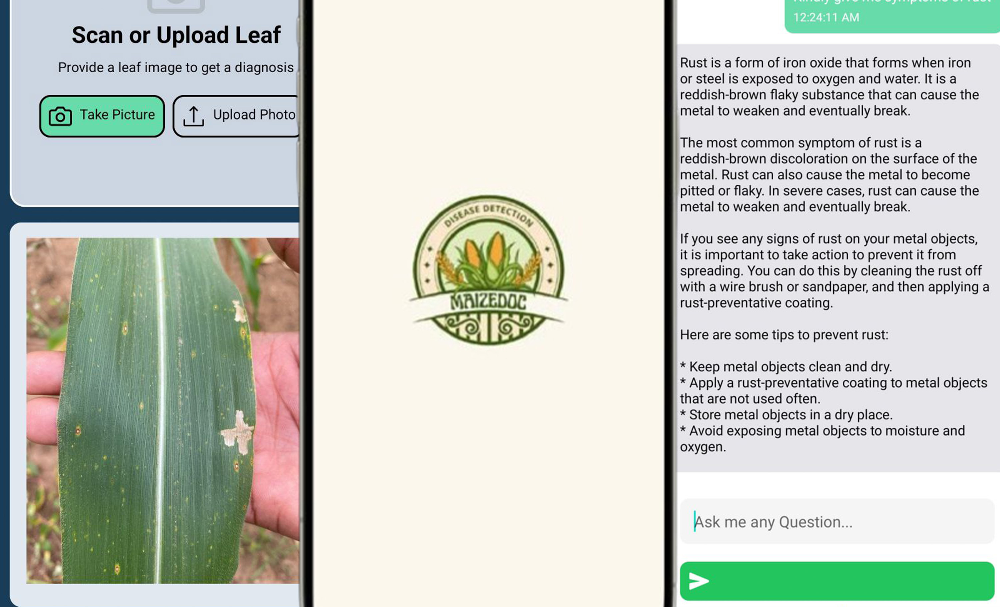A group of students from the Kwame Nkrumah University of Science and Technology (KNUST), Kumasi, has developed and deployed an artificial intelligence (AI) tool to help farmers detect diseases in maize crops.
The innovation aims to reduce the impact of plant diseases and boost food production in Ghana.
The team comprises Jessica Mawuenam Dellason, Zabaga Mitchell, and Lassey Elliot Kofi Ako. They used a popular object detection framework, to train a system that can recognize three common maize leaf diseases: maize streak virus, common rust, and Cercospora leaf spot. All three are known to damage crop leaves and significantly affect harvests.
The model works by scanning images of maize leaves and identifying signs of disease. To make it accessible and user-friendly, the students are building a mobile application that will host the trained model. This will allow farmers and agricultural workers to assess the health of their maize plants using just a smartphone camera.
According to the project description, the goal is to enable early detection. When farmers can identify infections early, they are better positioned to apply treatments or remove infected plants before the disease spreads. This helps reduce crop losses and saves money.
The students explain that their use of image recognition and deep learning makes the detection process faster and more accurate than traditional methods. Farmers typically rely on physical signs or wait for agricultural extension officers to visit their farms, which often results in delays that allow diseases to spread.
With the mobile app powered by the trained model, users will be able to scan a maize leaf and receive an instant diagnosis. This allows for quick action and helps reduce the unnecessary use of chemicals and other resources.
The team hopes their work will support smallholder farmers and contribute to food security in Ghana. For many of these farmers, maize is a critical source of both food and income. Tools that help ensure healthy crops can make a significant impact.
The project also demonstrates how artificial intelligence can be applied in agriculture. As more farmers adopt digital tools, technology is becoming an essential part of modern farming. This student-led innovation is a powerful example of how university research can help solve real-world problems.
The project was supervised by Dr. Theresa-Samuelle Maame Atwemaah Adjaido.
The students plan to continue improving the app and hope to add features such as treatment recommendations, links to agricultural support services, and maps to track disease outbreaks in different regions.
| Story by Mona Lisa Frimpong (Department of Computer Engineering) | |

















